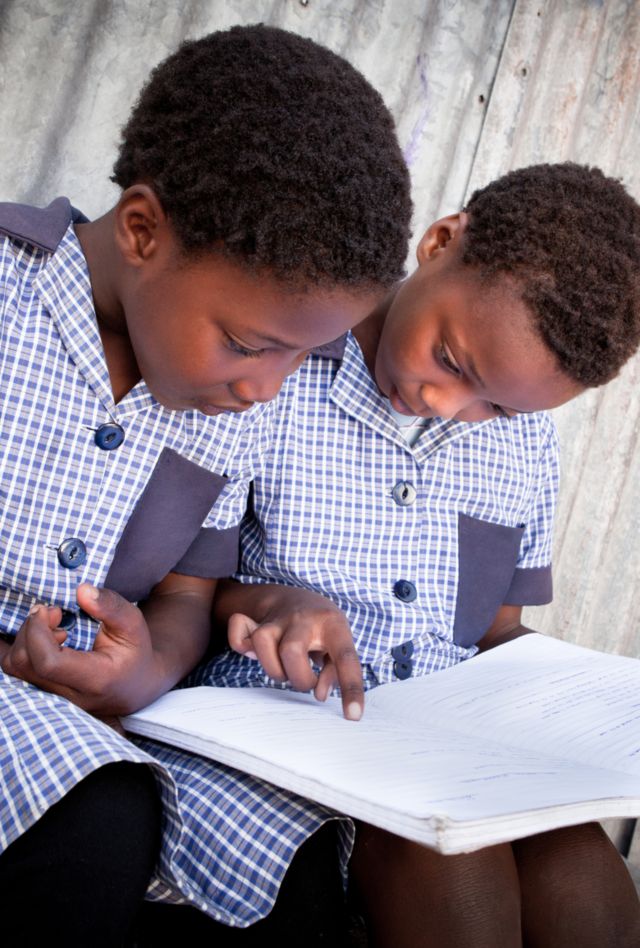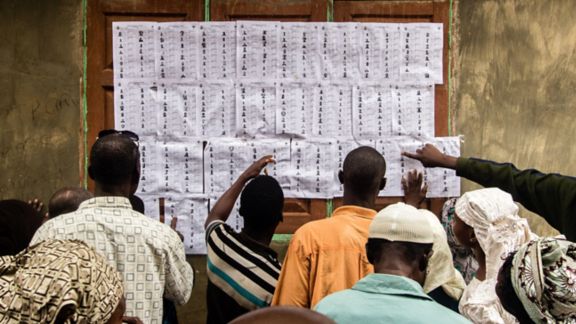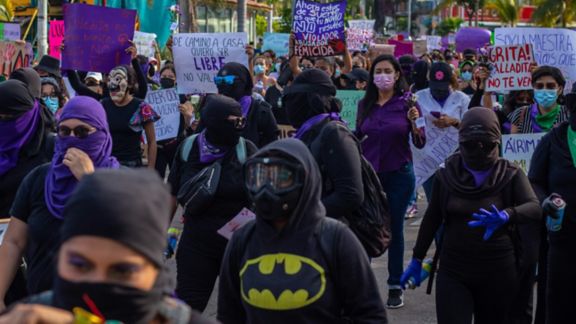Read Liberia Program Impact Evaluation

Problem
Did the Read Liberia program improve early grade reading performance of students?
The goal of the USAID Read Liberia program was to improve early grade reading performance of students in the six counties of Montserrado, Margibi, Bong, Grand Bassa, Nimba, and Lofa in Liberia. The program reached 640 public primary schools, 1,280 grade 1 and grade 2 teachers, and around 57,800 grade 1 and 2 students. The program supported teachers and principals with professional development and coaching and provided them with teacher guides and supplementary classroom materials. Each student received a reading book, an anthology of 34 fiction and non-fiction texts intended for use weekly in class and at home, plus an additional 19 supplementary stories and 34 read-aloud pictures with vocabulary. Each student also received an activity book with reading and practice activities for every week of the program. These were meant to be used in class and completed at home if necessary.
Solution
NORC conducted a randomized control trial of Read Liberia.
We chose a randomized control trial (RCT) design to provide a reliable estimate of program impact. Ninety schools were randomly assigned to treatment and control groups. In May 2017, before Read Liberia started, we collected baseline data—reading assessments (EGRA) and sociodemographic characteristics—from a random sample of grade 2 students in these schools. We also collected data about the schools, principals, and grade 2 teachers. In 2019, NORC conducted a midline study to better understand the implementation of Read Liberia and teacher instructional practices in classrooms. In March/April 2021, NORC collected endline data in the same schools visited at baseline. We collected the same data as at baseline from students, principals, and teachers along with information about Read Liberia implementation in the schools. In addition, we conducted 38 classroom observations of reading instruction in 2021 and 2022.
Result
Read Liberia improved reading performance, likely by exposing students to a larger quantity and better-quality of text.
The Read Liberia evaluation suggests that high quality materials in the hands of children can make a difference, even when there is a lack of programmatic impact on instructional practice. Almost every learner in the Read Liberia program had sufficient reading materials of reasonable quality, packaged into an easy-to-manage, grade-level reading anthology that was used at home and in the classroom. Combining this resource with quality instructional practices at school holds the potential for much higher impacts than those already found in the Read Liberia program.
Our evaluation found that:
- Read Liberia had a large positive effect on both oral reading fluency and comprehension.
- Read Liberia has benefited students at all reading skills levels.
- Reading at home increased.
- Instructional reading practices did not improve. We found low levels of instructional quality and a pedagogy that appeared not to have been impacted by Read Liberia training or materials.
- The difference in the availability of text between treatment and control schools was stark. In all but one treatment class, most learners had their own copy of the Let’s Read anthology, consisting of 50 leveled fiction and non-fiction texts and an additional 34 picture stories. Students could produce these even when they were not used in the lesson. They carried these readers to and from home and school and they looked well-used. In contrast, students in nine of the 13 control classrooms had no reading text of their own, and relied on the blackboard, a teacher’s single reading text, or handwritten text in their notebooks for reading in class. Read Liberia students also have an activity book and supplementary reading materials.
Related Tags
Project Leads
-
Varuni Dayaratna
Senior Vice PresidentProject Director -
Alicia Menendez
Senior FellowPrincipal Investigator -
Anna Solovyeva
Research ScientistQuantitative Analyst










